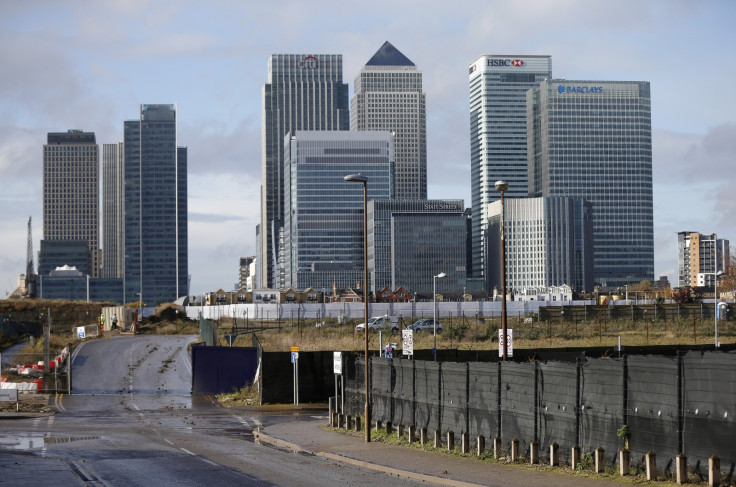Stefan Stern: Fear and loathing in finance lurks behind the sparkling glass towers of banking
Out of control. And ready to crash again. That is the considered verdict of Joris Luyendijk, a Dutch journalist and anthropologist, on large parts of the financial sector. Over the past four years, he has interviewed over 200 people working in the City of London at all levels – dealmakers, traders, accountants, compliance officers, HR.
He originally charted his findings in a blog for The Guardian newspaper. Now, he has published the English language version of Swimming With Sharks, a book that has already become a massive hit in his home country. It makes for essential, if at times depressing, reading.

Luyendijk's great achievement is to have persuaded people to talk frankly in a way they normally never do – not to journalists at least. As he says, in the City there is a code of silence about this code of silence.
Luyendijk describes his furtive progress through the Square Mile and Canary Wharf, slipping in and out of coffee bars and restaurants, trying to assure his interviewees that their identity will remain a secret – which it has. Pulling all the evidence together, he arrives at an unavoidable conclusion: some of these banks are simply too big to exist.
They are chaotic playgrounds for powerfully ambitious and amoral people dabbling with unstable and complicated financial instruments, who see no need to moderate their behaviour but who rather will continue to battle to make as much money as possible until they are stopped.
Things are worse than even the deepest sceptic might have feared. "We need to get rid of the idea of 'the bank'," a compliance officer tells him. "That term implies a unity of action and purpose, as if there's an all-encompassing view driving that bank. There is no such thing. What we have is a collection of individuals in positions of power. Each of them manages his or her world... You don't work for the bank, you work for someone and he's got a world around him."
An internal accountant tells the author: "Nobody really understands the banks any more, and that includes insiders... We are meant to understand the bank, and show the numbers illustrating that understanding. In reality, it's almost the other way round... it's a legitimising operation." And as for the external auditors: "Given how unintrusive external auditors are we could have a whole separate accounting system without them knowing."
Lack of job security
As Luyendijk contiunues his pilgrim's progress through the City, you can feel his shock and horror growing. These institutions are businesses like no other. There is little sense of common, corporate purpose. At times it is clearly every man or woman for him or herself. Job security is almost non-existent. You never know when the call will come from HR telling you that your time is up. So it seems almost rational to try and pull off mega deals and behave as recklessly as you can for as long as you can get away with it.
The glass towers of finance are impressive. But they conceal a terrible reality. "Look beyond the facade at the perverse incentives, at the silos and the climate of fear, at how zero job security breeds zero loyalty and at their unmanageable size and complexity, and you do not see a rationally organised command structure," Luyendijk writes, "you see a cluster of islands in the fog, staffed by mercenaries."

Split up the big banks, the author says, turn them into more sober and manageable organisations that are not too big to fail nor interlinked in a way that threatens the world economic system. Stop the wild gambling with other people's money. Demand high capital adequacy levels to make banks safer and steer them away from recklessness.
What Luyendijk has picked up from his conversations with practitioners and experts is just how close we came to a complete global financial meltdown in 2008. This fact is still not properly appreciated – thank the code of silence for this too. And yet, while some regulation has been tightened up, the author feels certain that the next catastrophe cannot be far off. Fundamentally, not that much has changed. The system has not been reformed.
And this is not the bankers' fault. It is instead a failure of political leadership and management. Luyendijk does not condemn the majority of people in the City who just get on with their (ordinary) work. But simply getting rid of a few bad people will not change anything either, he says.
"I am convinced that were we to pack off the entire City to a desert island and replace them with a quarter of a million new people, we would see in no time the same kind of abuse and dysfunctionality," he writes. "The problem is the system, and rather than angrily blaming individual bankers for acting on their perverse incentives we should put our energy into removing those incentives."
I am not sure that the great and the good of finance and politics will listen to a mild-mannered and laconic Dutch anthropologist. They should, but they probably won't. At least the author's conscience will be clear when the next great crash comes. At this rate that will be pretty soon.
Swimming With Sharks: My Journey Into The World Of The Bankers by Joris Luyendijk, published by Faber, is out now.
Stefan Stern is a business, management and politics writer. He writes for The Guardian and The Financial Times and is a visiting professor at Cass Business School.
© Copyright IBTimes 2025. All rights reserved.






















